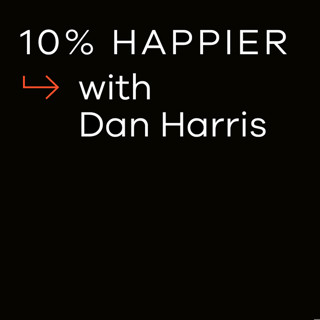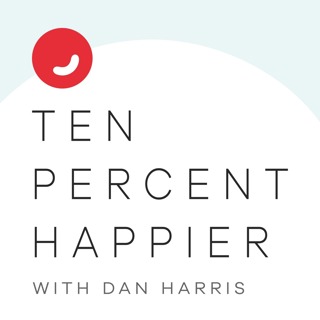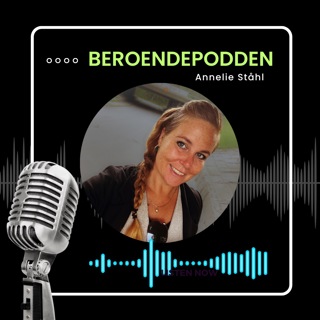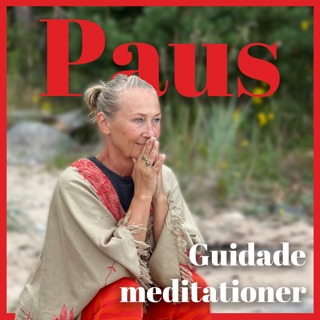
George Saunders on: “Holy Befuddlement” and How to Be Less of a “Turd”
New episodes come out every Monday, Wednesday, and Friday for free, with 1-week early access for Wondery+ subscribers. --- One of the great perils and problems of our age is that we sometimes become too entrenched in our views and attached to being right. According to guest George Saunders, the antidote is something he calls “holy befuddlement.” George Saunders is the author of eleven books, including Lincoln in the Bardo, which won the 2017 Man Booker Prize for best work of fiction in English. His most recent book, Liberation Day, is a collection of short stories that explore the ideas of power, ethics, and justice, cutting to the heart of what it means to live in community with our fellow humans. In this episode we talk about: How George Saunders creates “holy befuddlement” in himself and in his readers How shaving down dogmatism can help us be, in his words, less of a “turd” How to deal with heightened expectations we might have of ourselves Healthy ways to enjoy praise What it looks like to cultivate a relationship with our self, to the extent that the self exists The importance of moral ambiguity in his work The impact of meditating – or not meditating – on our creative work And forgiveness and coming up short Full Shownotes: https://www.tenpercent.com/podcast-episode/george-saunders-511
12 Okt 20221h 3min

Me, A Love Story: How Being OK With Yourself Makes You Better at Everything | Sharon Salzberg
New episodes come out every Monday, Wednesday, and Friday for free, with 1-week early access for Wondery+ subscribers. --- It might be hard to find a more annoying cliché than self-love; it can seem empty and inactionable. And even if you could make it work, I think many of us suspect it would lead to complacent resignation or unbridled narcissism. But there is an enormous amount of evidence that self-love, or as the scientists call it, self-compassion, can make you more effective in reaching your goals as well as lead to better relationships with everybody around you. On today’s show, the great meditation teacher Sharon Salzberg will walk us through the idea that love— both self-love and other love— is a skill that can be cultivated with massively positive impacts. Salzberg is a meditation pioneer, world-renowned teacher, and New York Times bestselling author. She is one of the first to bring mindfulness and lovingkindness meditation to mainstream American culture over 45 years ago, inspiring generations of meditation teachers and wellness influencers. Sharon is co-founder of The Insight Meditation Society in Barre, MA, and the author of twelve books, including the New York Times bestseller, Real Happiness, now in its second edition, and her seminal work, Lovingkindness. Her forthcoming release, Real Life: The Journey from Isolation to Openness and Freedom, is set for release in April of 2023 from Flatiron Books. Her podcast, The Metta Hour, has amassed five million downloads and features interviews with thought leaders from the mindfulness movement and beyond. This episode comes out in conjunction with Dan Harris’ recent TED Talk on self-love. You can watch the full talk here. In this episode we talk about: The definition of self-hatred and its predominance in the West The real practical benefits of self-compassion Whether there is a difference between self-compassion and self-love Why many people resist the idea of self-love The distinction between empathy and compassion and how they work together in Buddhism How to have lovingkindness for somebody who doesn't feel we have the right to exist Reclaiming words like love and happiness And how generosity makes us more whole Full Shownotes: www.tenpercent.com/podcast-episode/sharon-salzberg-510
10 Okt 20221h

Seven Buddhist Ingredients for a Happy Mind | Pascal Auclair
New episodes come out every Monday, Wednesday, and Friday for free, with 1-week early access for Wondery+ subscribers. --- Are you interested in suffering less? Today's guest, Dharma teacher Pascal Auclair, is going to talk about seven very specific and practical ways to train your mind for reduced suffering by exploring a Buddhist list called the seven factors of awakening, which is a part of the fourth foundation of mindfulness. We’ve talked about a bunch of Buddhist lists on the show before, but this is one of the happiest of all the lists to explore. Pascal Auclair has been immersed in Buddhist practice and study since 1997, sitting retreats in Asia and America. He has been mentored by Joseph Goldstein and Jack Kornfield, who have both been previous guests on this show. Pascal is now a core teacher at the Insight Meditation Society (IMS) in Massachusetts. He is also a co-founder of True North Insight and one of its guiding teachers. This episode is the fifth and final installment of a series we've launched on the four foundations of mindfulness. In this episode we talk about: The movement from difficult states of mind to more beneficial and helpful states of mind How the 7 factors can help you create your “best mind” The difference between the “energizing” and “calming” factors How to practically apply these factors to your daily life And specifically how the seven factors can improve your relationships Full Shownotes: www.tenpercent.com/podcast-episode/pascal-auclair-508
5 Okt 20221h 10min

An Episode for Overthinkers | Tuere Sala
New episodes come out every Monday, Wednesday, and Friday for free, with 1-week early access for Wondery+ subscribers. --- Thoughts are not your enemy in meditation. If you’re getting distracted while you meditate, that’s not necessarily a problem. Thoughts are natural. They’re always going to come. The point is not to clear the mind and to magically eradicate all thinking, the point is to have a different relationship to your thoughts. When we’re not mindful of our thoughts, they march into the room, tell us what to do, and we act them out, reflexively, habitually and automatically— like puppets on a string. Our guest today, Dharma teacher Tuere Sala, is going to talk about how to cut the strings of what can often be a malevolent puppeteer. Sala is a Guiding Teacher at Seattle Insight Meditation Society and Spirit Rock Retreat Center. She’s a former prosecutor who has practiced Vipassana meditation for over 30 years and is especially focused on bringing the dharma to nontraditional places. She is a strong advocate for practitioners living with high stress, past trauma and difficulties sitting still. In this episode we talk about: Why we get caught in our thinking Understanding that our thoughts are not who we are How to direct our attention away from negative thoughts How the idea of permanency causes suffering Using thinking itself as the object of our meditation Noticing mind states Relative reality vs. ultimate reality The eight states of mind and their felt sense in the body And Sala’s definition of true liberation Full Shownotes: https://www.tenpercent.com/podcast-episode/tuere-sala-510
3 Okt 20221h 11min

The 5 Things That Are Ruining Your Meditation (and Your Life) – And How to Handle Them | Bonnie Duran
New episodes come out every Monday, Wednesday, and Friday for free, with 1-week early access for Wondery+ subscribers. --- The Buddha was an inveterate list-maker who gave us easy to remember checklists to help us do life better. One of the handiest lists the Buddha made was called the five hindrances, which is a part of the fourth foundation of mindfulness. This list outlines the five things that mess us up when we’re trying to meditate — or, in fact, when we’re trying to do anything. If you’ve got issues right now, odds are pretty high that you are in the throes of one of the hindrances. The excellent news is that the Buddha not only made a taxonomy of the hindrances but also a long list of antidotes. We’re going to run through all of this today with Bonnie Duran, a great dharma teacher who is making her second appearance on the show. Duran is a teacher and member of the Teachers Council at Spirit Rock Meditation Center and Director of the Center for Indigenous Health Research at the University of Washington’s Indigenous Wellness Research Institute. She combines extensive research and practice of Buddhism with her deep understanding of indigenous spiritual practices. This episode is the fourth installment of a series we've launched on the four foundations of mindfulness. In this episode we talk about: How the five hindrances manifest in our daily lives Using the RAIN technique to investigate the 5 hindrances Whether there is any type of desire that is helpful Cultivating a sky-like attitude How to not water the seeds of negativity The similarities between Indigenous beliefs and what the Buddha taught How body scans can be an antidote to sleepiness And whether you can ever uproot the hindrances entirely Full Shownotes: https://www.tenpercent.com/podcast-episode/bonnie-duran-505
28 Sep 20221h 5min

How To Stop Living An Artificial Life | Karen Armstrong
New episodes come out every Monday, Wednesday, and Friday for free, with 1-week early access for Wondery+ subscribers. --- Most of us come into the world with the suspicion that we are the center of the universe. This self-preoccupation is natural, but it can often lead to unhappiness in the form of rumination, wallowing, comparison, etc. Our guest today, author Karen Armstrong, has a clear proposal for how we can stop living what she calls “artificial” lives and shave down our inborn self-centeredness. Not for nothing, she believes her proposal has the added benefit of perhaps helping to save the planet. Armstrong is a former nun who has become one of the world’s leading thinkers on religion (particularly the monotheistic ones). She has written such bestsellers as: A History of God: The 4,000-Year Quest of Judaism, Christianity and Islam, The Battle for God, Islam: A Short History, and Buddha. Her latest book is called Sacred Nature: Restoring Our Ancient Bond with the Natural World. In this episode we talk about: Practices you can try for using nature as a way to make yourself happier How Armstrong conceives of God at this point in her life The benefits of the Confucian practice of “quiet sitting” How her time as a nun paradoxically made her more self-preoccupied rather than less And her definition of holiness Full Shownotes: https://www.tenpercent.com/podcast-episode/karen-armstrong-504
26 Sep 202257min

The Mental States That Steal Your Calm | Bhikkhu Bodhi
New episodes come out every Monday, Wednesday, and Friday for free, with 1-week early access for Wondery+ subscribers --- Ever have that experience where you catch yourself in a moment of anger, judgmentalism or fear? And, with a wince, immediately tell yourself a whole story about what kind of person you are? How do you stop this from happening or cut it short once it’s already begun? The answer? Mindfulness or having the basic self-awareness to see what kind of mental states are arising so that you are not owned them. To use a technical Buddhist term this is called, “mindfulness of mind.” It’s the ability to see your mind states without taking them personally and it comes from one of the Buddha’s most famous lists called the four foundations of mindfulness. Today we are going to learn about the whys and wherefores of mindfulness of mind from one of the most esteemed living Buddhist scholars, Bhikkhu Bodhi. Bodhi is a monk, originally from NYC. He is a prolific translator, scholar, and author of books on the Buddha’s teachings. He is also President of the Buddhist Association of the United States and co-founder and Chairperson of the Board of Buddhist Global Relief. This episode is the third installment of a series we've launched on the four foundations of mindfulness. In this episode we talk about: The historical backdrop of the four foundations of mindfulness What exactly the Buddha meant by “mindfulness of mind” How we can know whether or not we are being mindful How not to let our mindfulness become a sort of compulsive internal nanny state Practical instructions for the third foundation (given that the Buddha never actually gave them) And Bhikkhu Bodhi’s view that we should not be mindfulness zealots Photo Credit: Hsiao Ying Chang (史曉瑛) Full Shownotes: https://www.tenpercent.com/podcast-episode/bhikkhu-bodhi-502
21 Sep 202258min

Messiness Is Not a Moral Failing | KC Davis
New episodes come out every Monday, Wednesday, and Friday for free, with 1-week early access for Wondery+ subscribers. --- Today we’re talking about an often overlooked source of suffering— housework. There are so many ways in which housework can be a bummer. Maybe we’re feeling guilty about the fact that our place is always a mess. Maybe we’re driving ourselves crazy with obsessive cleaning. Maybe we have relatives who are overly critical about the state of affairs in our home. Maybe gender politics with our spouses and partners is a source of strife. Our guest today, KC Davis, helps deconstruct these often rigid and daunting cultural norms that surround the concept of domestic bliss. As a self-styled anti-perfectionist, Davis has garnered a huge audience on TikTok with more than 1 million followers. She has also written the book, How to Keep House While Drowning: A Gentle Approach to Cleaning and Organizing. On today’s show, she offers a ton of practical tips that are rooted in self compassion and the dogged determination not to use shame as a motivator when it comes to our domestic lives. In this episode we talk about: One of KC’s slogans,“You don’t exist to serve your space, your space exists to serve you” The difference between what’s “normal” and what’s “functional”. For example, why that pile of laundry on the floor is just fine if it works for you Why it’s important to think of house work as morally neutral. For example, why doing dishes has nothing to do with you being a good or bad person Why she doesn’t believe laziness exists The power of what she calls “category cleaning” Breaking the clean/not clean binary And achieving equitable division of labor around the house Full Shownotes: https://www.tenpercent.com/podcast-episode/kc-davis-501
19 Sep 20221h 3min






















